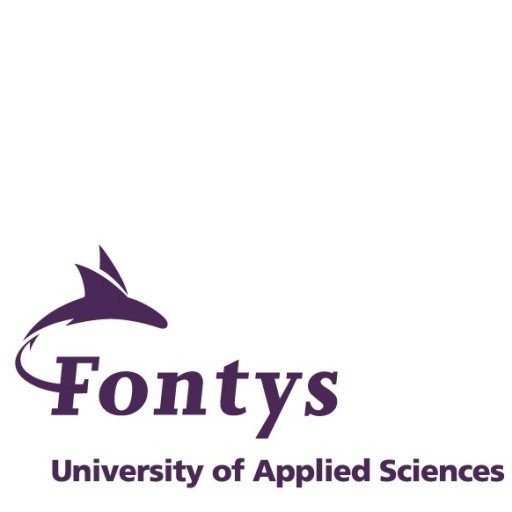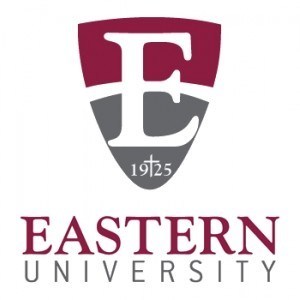Photos of university / #sunderlanduni
The BSc (Hons) Computing (Information Communication Technology) programme at the University of Sunderland is designed to equip students with a comprehensive understanding of the core principles and practical skills needed in the rapidly evolving field of ICT. This course offers a balanced blend of theoretical knowledge and hands-on experience, preparing graduates for a wide range of careers in IT, telecommunications, and digital communication industries. Throughout the programme, students will explore essential areas such as computer hardware and software, networking, cybersecurity, systems analysis and design, database management, and software development. The curriculum emphasizes the importance of innovative problem-solving, critical thinking, and effective communication, enabling students to adapt to technological changes and meet industry demands. Students will also develop an understanding of project management and ethical considerations in ICT, preparing them for roles that require both technical expertise and professional judgement. The programme is delivered through a combination of lectures, practical workshops, industry projects, and placements, providing real-world experience and opportunities to apply learned skills in practical settings. Graduates of this programme are well-prepared for roles such as ICT support technician, network administrator, systems analyst, cybersecurity specialist, or software developer. The university's strong links with industry partners and its focus on employability ensure that students receive relevant training aligned with current market needs. The course also encourages lifelong learning and continuous professional development, fostering adaptable and innovative ICT professionals ready to excel in a competitive job market. With state-of-the-art facilities and expert academic staff, the BSc (Hons) Computing (Information Communication Technology) at Sunderland offers an ideal environment for students seeking to build a successful career in the technology sector.
The Bachelor of Science in Information Communication Technology at the University of Sunderland offers a comprehensive curriculum designed to equip students with essential skills and knowledge required for a successful career in the rapidly evolving field of ICT. The programme provides a blend of theoretical foundations and practical applications, ensuring graduates are well-prepared to meet industry demands. Throughout the course, students will explore core areas such as computer systems, network administration, cybersecurity, software development, and database management. The curriculum emphasizes current technological trends, including cloud computing, mobile application development, and emerging communication platforms, fostering innovative thinking and problem-solving abilities.
Students will have the opportunity to engage in hands-on projects, laboratories, and industry placements, allowing for real-world experience that enhances their technical competence and employability. The programme also addresses key soft skills such as teamwork, communication, and project management, which are vital for success in the ICT sector. The course is structured to build progressively, starting with fundamental concepts in computing and communication technology, advancing through specialized modules, and culminating in a final project or dissertation that demonstrates applied skills and knowledge.
Furthermore, the programme is delivered by experienced academic staff who are actively involved in research and industry collaborations, ensuring that teaching remains relevant and up-to-date. The university’s state-of-the-art laboratories and facilities support a dynamic learning environment. Graduates of this programme can pursue careers in various sectors including IT consultancy, network administration, software engineering, cybersecurity analysis, and telecommunications. Alternatively, the qualification provides a solid foundation for postgraduate study or professional development opportunities. This programme is ideal for students passionate about technology and innovation, seeking to develop a versatile skill set that aligns with current and future industry needs.
Academic Requirements: Prospective students are expected to have completed secondary education with strong results in relevant subjects such as Mathematics, ICT, or Computing. International applicants should provide proof of English language proficiency through standardized tests such as IELTS with a minimum overall score of 6.0, or equivalent.
Tuition and Fees: The tuition fee for this programme varies depending on the year of entry and residency status. For international students, the annual fee is approximately £13,500. Financial aid options, including scholarships and bursaries, are available for eligible students, which can significantly reduce the overall cost of study.
Application Process: Interested applicants must submit an online application form through the university's admissions portal. Additional documents required include academic transcripts, a personal statement outlining motivation and interest in ICT, and references from previous teachers or employers. International students may also need to provide a copy of their passport and visa documentation.
Curriculum and Course Requirements: The programme is designed to provide a comprehensive understanding of core ICT principles, including computer systems, programming, networking, and cybersecurity. Students must complete a combination of lectures, practical laboratory sessions, and project work. Throughout the course, students are encouraged to participate in industry placements and internships to gain real-world experience.
Assessment Methods: Assessment is continuous and includes assignments, project reports, presentations, and examinations. Practical skills are evaluated through laboratory exercises and group projects. Students are required to demonstrate competence in both theoretical knowledge and practical application to achieve certification.
Entry Points and Progression: The programme offers an entry point in the September intake, with possible alternative start dates in January, subject to availability. Successful completion of this degree opens pathways to careers in software development, network administration, cybersecurity, data analysis, and further postgraduate study options.
Work Placement and Industry Links: The university maintains strong links with local and national ICT companies, facilitating industry placements and collaborative projects. Students have opportunities to engage with real-world problems, enhancing employability upon graduation.
Language of Instruction: The programme is delivered entirely in English. Support services are available to assist students in improving their language skills if necessary.
Additional Requirements: Applicants may be asked to attend an interview or undertake a skills assessment as part of the selection process. Prospective students are encouraged to demonstrate enthusiasm and a strong interest in technology and computing.
Program Accreditation: This degree program is accredited by relevant professional bodies in ICT, ensuring it meets industry standards and enhances graduate employment prospects.
The University of Sunderland offers a variety of financing options for students enrolled in their Information Communication Technology (ICT) undergraduate programs. Domestic students can access funding through government-backed student loans, which cover tuition fees and living expenses, available from Student Finance England. These loans are usually repayable once graduates earn over a specified income threshold, with flexible repayment terms to accommodate diverse financial situations. Furthermore, the university provides a range of scholarships and bursaries for eligible students, aimed at supporting academic excellence, financial need, or specific demographic groups. International students are advised to explore scholarship opportunities offered directly by the university, including merit-based awards and support funds to assist with tuition fees and accommodation costs. Additionally, students may consider external sources of funding such as private scholarships, sponsorships, and educational grants from organizations related to the technology sector or regional development initiatives. The university also offers advice services to help students identify suitable funding sources and prepare necessary documentation for applications. For students requiring part-time work, Sunderland encourages employment opportunities both on and off-campus, facilitating part-time roles that complement academic pursuits and help manage personal expenses. Additionally, the university's career service provides guidance on internships and industry placements, which can sometimes include stipends or financial rewards. Payment plans are also available, allowing students to spread the cost of tuition fees over manageable installments throughout the academic year. For postgraduate ICT programs, students may be eligible for specialized research funding or assistantship positions that provide financial support in exchange for academic or research contributions. Overall, the university strives to ensure that financing options are accessible and transparent, helping students focus on their studies and achieve academic success without undue financial hardship.
The Bachelor of Science in Information and Communication Technology (ICT) at the University of Sunderland is a comprehensive program designed to equip students with a broad range of skills and knowledge essential for a successful career in the rapidly evolving field of ICT. The course provides an in-depth understanding of the fundamental principles of computing, networking, and digital communication technologies. Students will explore various aspects of information systems, software development, cybersecurity, and data management, preparing them to address the complex technological challenges faced by modern organizations.
Throughout the program, learners have opportunities to engage with practical and industry-relevant projects, fostering problem-solving skills and technical proficiency. The curriculum is regularly updated to incorporate recent advancements in technology, including cloud computing, IoT, artificial intelligence, and machine learning. This ensures that graduates are well-equipped to operate in diverse sectors such as finance, healthcare, telecommunications, and government agencies.
The program emphasizes the development of both technical and transferable skills, including critical thinking, teamwork, communication, and project management. Students may benefit from access to the university’s state-of-the-art laboratories and resources, which facilitate hands-on learning experiences. Furthermore, the course includes opportunities for work placements and internships in partnership with industry leaders, providing valuable real-world experience and networking opportunities.
Graduates of the ICT program at the University of Sunderland are prepared for various careers such as network administrators, systems analysts, software developers, cybersecurity specialists, and IT consultants. The program also offers a solid foundation for those interested in pursuing postgraduate studies or research in related fields. Students are encouraged to develop an understanding of the ethical and social implications of ICT and to learn how to implement solutions responsibly and sustainably.
Overall, the program aims to foster innovation, technical excellence, and adaptability, enabling graduates to thrive in an increasingly digital world. The collaborative learning environment, combined with dedicated academic staff and practical exposure, makes the University of Sunderland’s ICT program a compelling choice for aspiring IT professionals seeking a dynamic and future-proof education.








